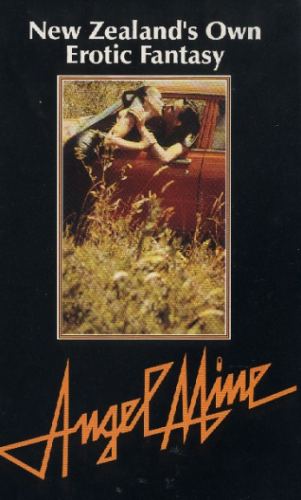
Angel Mine
1978
The film that launched New Zealand's punk cinema movement
A surreal exploration of suburban materialism and sexual awakening in 1970s New Zealand.
The Punk Manifesto
Angel Mine was the first film funded by the New Zealand Interim Film Commission and stands as a radical statement against suburban conformity. Made for just $30,000, this experimental drama brought a Do-It-Yourself punk aesthetic to New Zealand cinema.
"Angel Mine came out of nowhere and caught a lot of people by surprise. It was an attack on the great suburban dream of New Zealand, the whole focus on 'get a job, get a house and a mortgage' - a whole philosophy which punk was about questioning."
The film explores how our dreams and fantasies are being replaced by mass-produced consumable entities through visual media. Set against the backdrop of 1970s Auckland, it follows a suburban couple whose repressed alter egos represent a darker, more liberated version of themselves.
Critical Reception
Angel Mine caused unprecedented controversy, leading to renewed calls for censorship tightening. Critics were divided - some dismissed it as banal, while others recognized its genuine originality and importance to New Zealand cinema.
"Angel Mine is as mature and entertaining an analysis as has emerged in film here. Despite the relative youth of 22-year-old Blyth, it's clearly a director's piece."
Cast & Crew
Cast
- Derek Ward
- Jennifer Redford
- Myra De Groot
- Mike Wilson
Key Crew
- Director: David Blyth
- Producers: David Blyth, Warren Sellars
- Cinematography: John Earnshaw
- Music: Mark Nicholas
Historical Context
The very first punk concert in New Zealand was a fundraising event at Auckland University for Angel Mine, marking the intersection of punk music and cinema.
Blyth described himself as a "garage film-maker" working alongside garage bands, using an old red Bolex camera with no formal training.
The film was ranked No. 2 on NZ On Screen's Top Ten Most Viewed titles of 2015.
Precursor: Circadian Rhythms (1976)
Before Angel Mine, Blyth created Circadian Rhythms (1976), described as the New Zealand equivalent of Buñuel and Dalí's Un Chien Andalou. This short psycho-sexual film explored the subconscious through dreamlike sequences.
The film follows a man's consciousness after a car crash, featuring surreal imagery, electronic music by Ross Harris, and ending with the actual sound of a child's birth - representing the emergence into consciousness.

Gallery
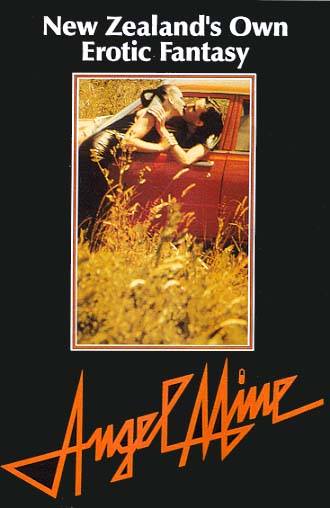 /images/angelmine/angelmine_poster.jpg
/images/angelmine/angelmine_poster.jpg  /images/angelmine/AngelMine.jpg
/images/angelmine/AngelMine.jpg  /images/angelmine/angelmine_cover.jpg
/images/angelmine/angelmine_cover.jpg 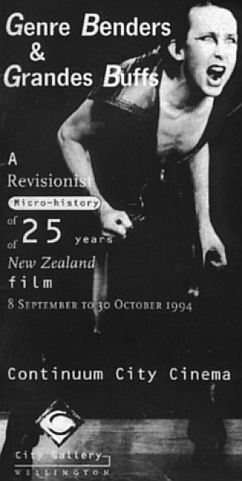 /images/angelmine/genderbenders1.jpg
/images/angelmine/genderbenders1.jpg  /images/angelmine/circadian.jpg
/images/angelmine/circadian.jpg 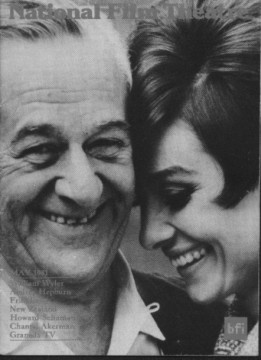 /images/angelmine/NationalFilmTheatre.jpg
/images/angelmine/NationalFilmTheatre.jpg  /images/angelmine/NZF49.jpg
/images/angelmine/NZF49.jpg 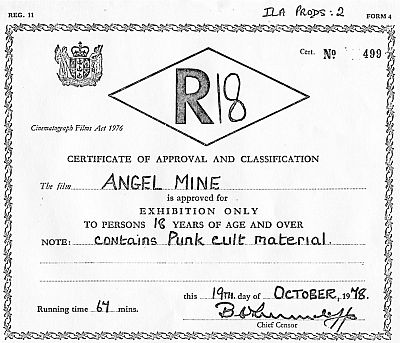 /images/angelmine/R18.jpg
/images/angelmine/R18.jpg  /images/angelmine/angelmine_listing2.jpg
/images/angelmine/angelmine_listing2.jpg 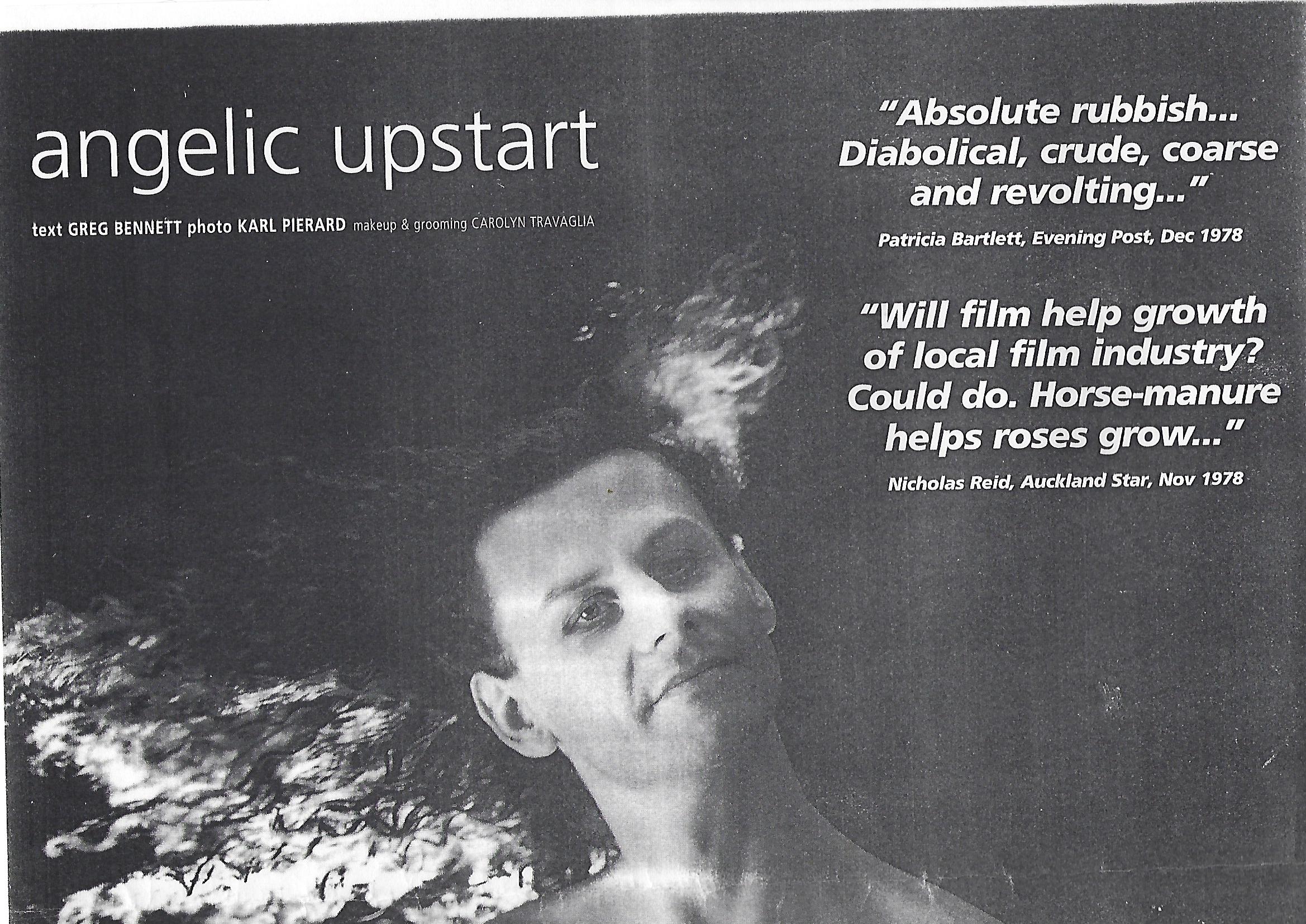 /images/angelmine/angelmine-review.jpg
/images/angelmine/angelmine-review.jpg 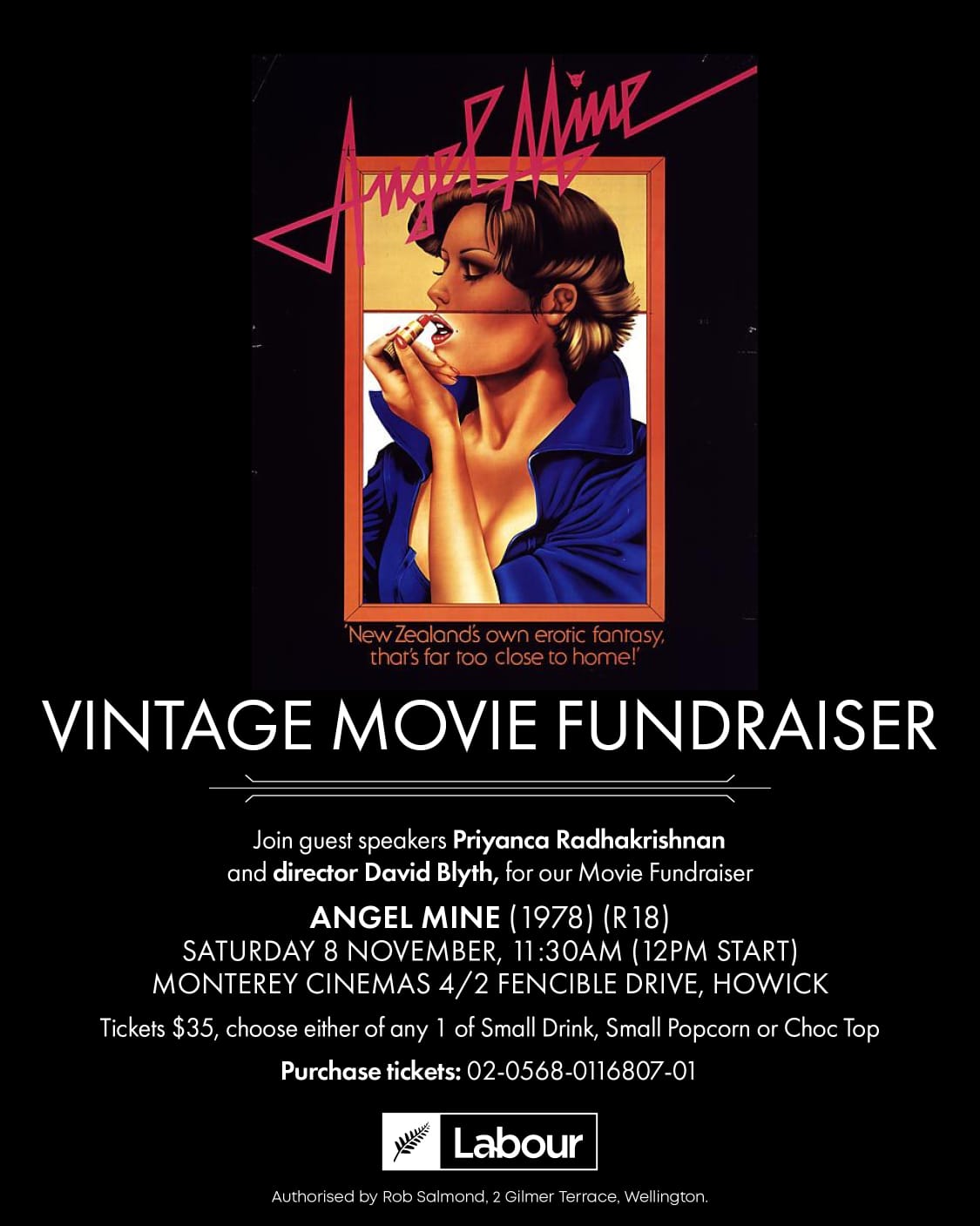 /images/angelmine/angelmine-labour.jpg
/images/angelmine/angelmine-labour.jpg 30th Anniversary Recognition
Wrocław Poland Retrospective (2008)
Angel Mine was featured in the largest New Zealand Cinema Retrospective ever, held in Wrocław, Poland in March 2008, curated by Dr Ian Conrich of the New Zealand Media Studies Centre at London University.
David Blyth also gave a Master Class at the Media Studies Centre during the retrospective, celebrating 30 years since this groundbreaking film's release.
Lasting Legacy
The film received a glowing review following its Poland screening, with critics noting how accurately it captured the zeitgeist of late 1970s Auckland and the emerging punk movement.